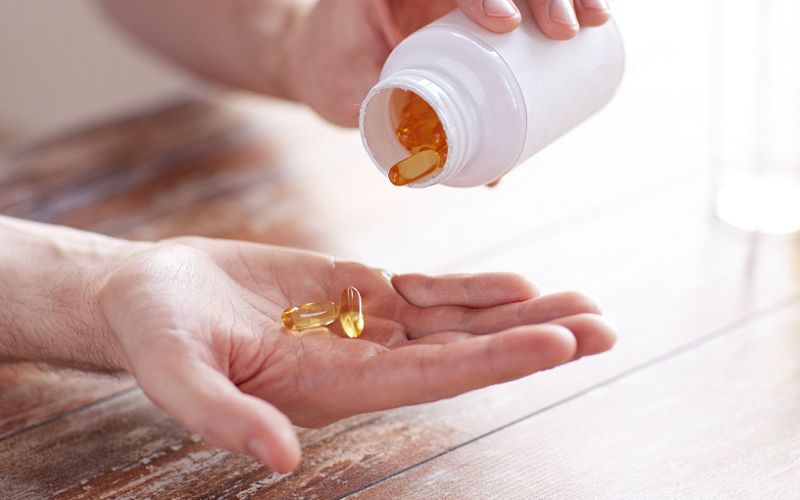
In the realm of cognitive enhancement and nutritional supplementation, Phosphatidylserine stands out for its promising benefits. This naturally occurring compound plays a crucial role in the structure and function of cellular membranes, particularly in the brain. The question of whether to take Phosphatidylserine with or without food is more than a matter of personal preference; it’s a consideration that can impact the compound’s bioavailability and, ultimately, its efficacy. The timing of supplementation could play a significant role in achieving desired outcomes, whether they pertain to cognitive function, athletic performance, or stress management.
Contents
Understanding Phosphatidylserine
Phosphatidylserine is a phospholipid, a type of fat that is integral to the structure of cell membranes, especially within the brain. Its role in cognitive functions, including memory, concentration, and learning, has sparked considerable interest in its potential as a dietary supplement.
Phosphatidylserine is more than just a supplement; it’s a vital component of our cellular architecture. Found in particularly high concentrations in the brain, it facilitates cell-to-cell communication and helps maintain cellular integrity. This phospholipid also plays a key role in apoptosis, the process of programmed cell death, which is crucial for the development and maintenance of healthy tissues.
Phosphatidylserine has been researched for its potential in improving cognitive functions, such as memory, learning, and concentration. Studies have also explored its efficacy in reducing stress and improving athletic performance, making it a versatile supplement for mental and physical health. Although research is ongoing, the current evidence suggests that Phosphatidylserine can play a supportive role in overall brain health, particularly in the context of aging.
Absorption and Bioavailability of Phosphatidylserine
A key aspect of supplementing with Phosphatidylserine — or any supplement, for that matter — is understanding how it is absorbed by the body and how bioavailable it is. Bioavailability refers to the proportion of a nutrient that is digested, absorbed, and made available for use by the body.
How Phosphatidylserine Is Absorbed in the Body
Phosphatidylserine is absorbed in the small intestine and then transported throughout the body, where it incorporates into cell membranes. The efficiency of this process can vary based on several factors, including the composition of the individual’s diet, the health of their digestive system, and the presence of other nutrients that may facilitate or hinder absorption.
The lipid-soluble nature of Phosphatidylserine means that its absorption is likely enhanced in the presence of dietary fats, which can incorporate it into micelles—a critical step for the absorption of fat-soluble substances. This suggests that taking Phosphatidylserine with meals containing fats might improve its bioavailability.
The Role of Food in the Absorption of Phosphatidylserine
The question of whether to take Phosphatidylserine with or without food is not just about convenience; it also pertains to how well the supplement can be utilized by the body. Consuming Phosphatidylserine with food, especially fats, may enhance its absorption due to the increased solubility of the phospholipid in the digestive tract. This, in turn, can lead to higher levels of the compound being available for use by the body, potentially increasing its effectiveness.

Taking Phosphatidylserine With Food
The decision to take Phosphatidylserine with food is more than a matter of convenience; it has real implications for the supplement’s effectiveness. Given its fat-soluble nature, Phosphatidylserine’s absorption is potentially enhanced when consumed with dietary fats.
Benefits of Taking Phosphatidylserine With Food
Taking Phosphatidylserine with food can offer several advantages, improving not just its absorption but also the user’s experience with the supplement.
Enhanced Absorption
The presence of dietary fats in a meal can increase the solubility of Phosphatidylserine in the gastrointestinal tract, enhancing its absorption. This is crucial for fat-soluble compounds, as they require fats to be effectively absorbed and utilized by the body [1].
Reduced Gastrointestinal Discomfort
Some supplements can cause stomach upset or discomfort when taken on an empty stomach. Consuming Phosphatidylserine with food can mitigate these issues, making the supplementation process more comfortable.
Interaction With Dietary Fats
Fats play a pivotal role in the absorption of fat-soluble vitamins and supplements. Meals containing healthy fats, such as omega-3 fatty acids, not only aid in the absorption of Phosphatidylserine but also contribute to overall health, supporting brain function and reducing inflammation.
Types of Food That May Enhance Absorption of Phosphatidylserine
To maximize the absorption and efficacy of Phosphatidylserine, including certain types of food in your meal can be beneficial.
Fatty Acids and Their Impact
Foods rich in omega-3 fatty acids, such as fish, flaxseeds, and walnuts, are excellent companions for Phosphatidylserine supplementation. These fats not only improve the absorption of the supplement but also offer complementary benefits for brain health.
Meal Composition Considerations
A balanced meal that includes a good source of healthy fats, moderate protein, and low-glycemic carbohydrates creates an optimal environment for the absorption of Phosphatidylserine. For example, a meal consisting of salmon, a side of quinoa, and steamed vegetables drizzled with olive oil provides an ideal mix of nutrients to support the absorption process.
Taking Phosphatidylserine Without Food
While taking Phosphatidylserine with food is often recommended to enhance absorption, there are circumstances where taking it without food might be considered or preferred.
Potential Benefits of Taking Phosphatidylserine Without Food
Choosing to take Phosphatidylserine without food can offer certain advantages, depending on an individual’s lifestyle, schedule, and specific health goals.
Convenience and Flexibility
For some, finding the right time to take supplements around meals can be challenging. Taking Phosphatidylserine without food provides flexibility, allowing for supplementation at any time of day without the need to coordinate with meal times [2].
Situations Where It Might Be Preferable
In some cases, such as when fasting or following specific dietary protocols, taking supplements without food is necessary. Some individuals may find they tolerate certain supplements better on an empty stomach or prefer to take them first thing in the morning to establish a consistent routine.
Possible Drawbacks of Taking Phosphatidylserine Without Food
While there are situations where taking Phosphatidylserine without food may be beneficial or necessary, there are also potential drawbacks to consider.
Impact on Absorption
The primary concern with taking fat-soluble supplements like Phosphatidylserine without food is the potential decrease in absorption efficiency. Without dietary fats to aid in its absorption, there’s a possibility that less of the supplement will be utilized by the body, potentially diminishing its effectiveness.
Risk of Gastrointestinal Issues
Some individuals may experience stomach upset or discomfort when taking supplements on an empty stomach. While Phosphatidylserine is generally well-tolerated, the risk of gastrointestinal distress may increase when taken without food, particularly for those with sensitive stomachs.
References
[1] Phosphatidylserine
[2] Phosphatidylserine Vitamins & Supplements
